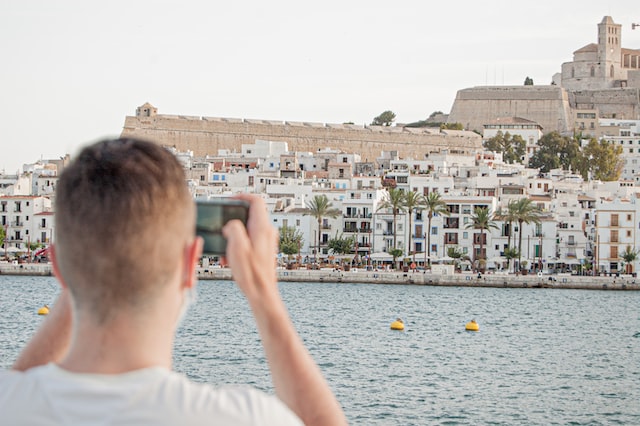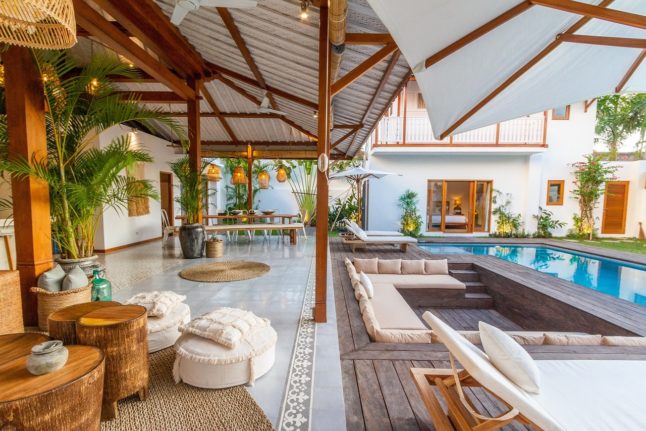The Balearic Islands government is proposing limits on the number of properties that can be bought by non-resident foreigners on the popular islands of Mallorca, Menorca, Ibiza and Formentera.
In the regional parliament on Wednesday, Minister for Labour, Tourism and Industry Iago Negueruela pushed the motion, calling for a “deep debate” on how to limit the purchase of homes on the Balearic Islands to non-residents and people who have been living in the archipelago for less than five years.
The Balearics, long a holiday getaway for wealthy Northern Europeans, has seen a boom in the number of second homes bought by non-resident foreigners in recent years.
The regional parliament has approved a motion to introduce limits, part of a broader initiative to curb overpopulation and property saturation on the islands.
It is yet to outline a concrete policy on how exactly these property purchase limits would be enforced by law.
Foreign buyers
So why would the government want to bring down the number of foreign buyers on the Balearics?
In the two decades from 2000-2020, the islands’ population total has grown by 50 percent – rising from 823,000 to 1,223,000 inhabitants.
Around a third (32.67 percent) of property purchases in the Balearics are made by foreigners, and of those 57.4 percent are residents, while the remaining 42.6 percent are non-residents.
This growth has placed great stress on the housing sector, and the boom in foreigners looking to buy property on the island in recent years has made housing far less accessible for locals. “The Balearic Islands,” Negueruela said, “can’t be a theme park where the people of our islands don’t have a place.”
The Balearic government has pointed to examples of similar housing protections around Europe – in particular Finland, Denmark and Malta – that limit the number of properties sold to non-residents to help regulate the market and protect the purchasing power of local residents.
Negueruela has said that if nothing is done, and the policies of former regional president Gabriel Cañellas are followed, the islands will become “the second residence of Europe.”
Opposition
The proposals have met some opposition, however. The Balearics, which generates 35 percent of its GDP from tourism, according to figures from Caixa Bank, has long been a holiday or second-home hub for wealthy foreigners.
On this point, right-wing Popular Party member Sebastià Sagreras suggested in the regional parliament that conflating the foreign-buyer property market with local shortages is unhelpful, adding that the properties bought by foreigners, often worth more than a million euros, “do not compete” with those that cost €200,000 or €250,000 and are largely bought or rented by national residents.
Unsurprisingly, estate agents are opposed to the proposed changes as well. The real estate market makes up a sizeable proportion of the Balearic’s GDP, and they argue that interference in the free market would lead to an increase in unemployment and a fall in tax revenue on property transfers, one of the taxes that draws in the most to the public coffers.
The International Balearic and Real Estate Association, ABINI, have even cast doubt on the legality of the motion, suggesting the Balearic parliament is moving ahead with the proposals “without legal validity, nor real effects on the limitation of the sale of real estate to foreigners. This limitation violates national and European regulations, and will generate more confusion than solutions.”
Change of model
The proposals come amid broader attempts at reconfiguring the Balearics’ tourism model, hoping for a move away from being so dependent on monied foreigners towards a more sustainable model.
The Parliament has already supported a policy to limit the entry of rental cars in Mallorca, Menorca and Ibiza, a measure that has been enforced in Formentera for the last four years. During the summer months, the Balearic Islands welcomes not only thousands of tourists but cars, especially rental cars, which congest the road networks and damage natural environments such as the archipelago’s many beaches and coves.
Furthermore, the port of Palma de Mallorca has limited the number of cruise ships that can dock there – capping the maximum at three per day can, of which only one can exceed 5,000 passengers.
Plans to decrease the number of hotel rooms on the Balearics have also been green lit by the government. A total of 625,000 hotel places are currently available across the islands. To put that in perspective, the Balearics have 1.2 million residents, meaning there is roughly one hotel bed for every two inhabitants on the Balearic Islands.
The hope is to get rid of around 40,000 of them, mainly in smaller, cheaper hotels popular in the ‘booze’ tourism trade.
Given the Balearic government’s already proactive approach to creating a more sustainable tourism model, and the fact that it’s the islands’ tourism minister that’s pushing for this latest measure, there is a high chance that budding second-home owners in Mallorca, Menorca, Ibiza and Formentera could soon face restrictions.



 Please whitelist us to continue reading.
Please whitelist us to continue reading.
Member comments